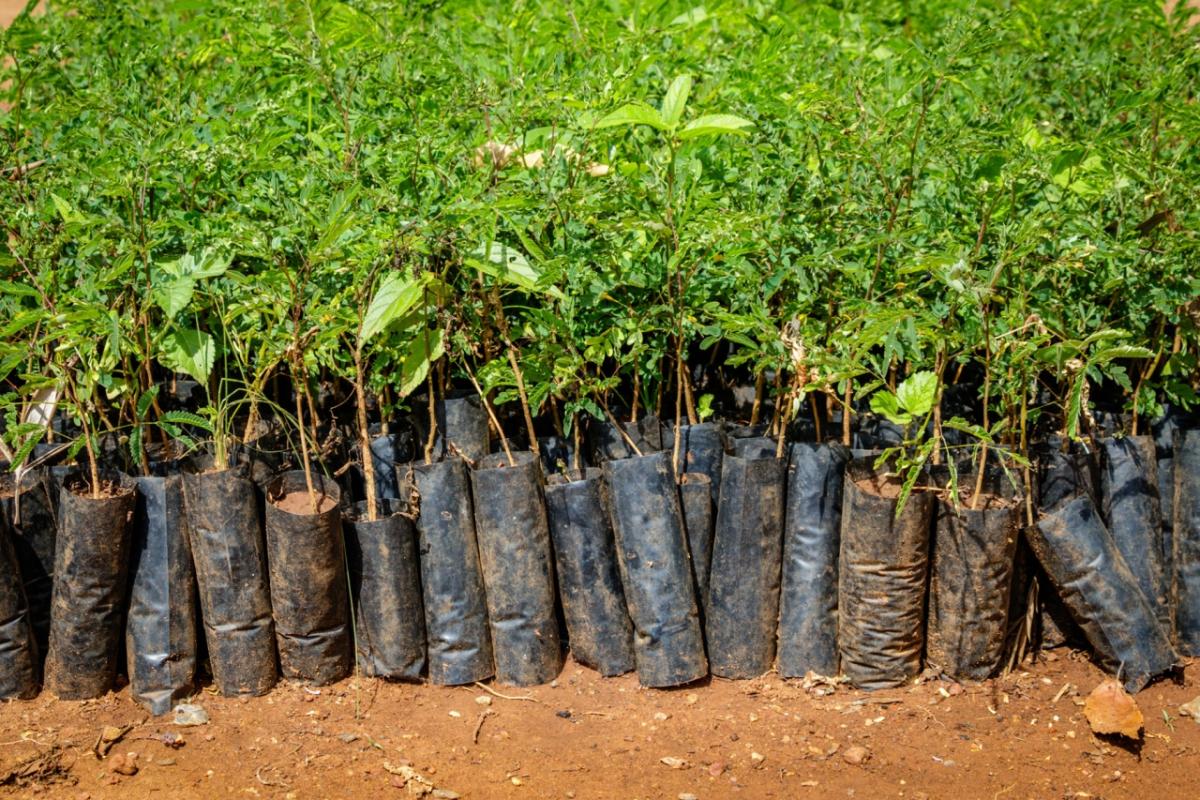Gauging the Workability of Carbon Credits in Morocco: A Q&A with Erb Institute | Business for Sustainability Alum Dannan Hodge

The High Atlas Foundation (HAF) works to improve livelihoods and spur economic growth and grassroots development in disadvantaged communities in Morocco. HAF brought in Erb alum Dannan Hodge to help with the organization’s potential carbon credit projects. Hodge’s three-week project was funded by the Land O’Lakes Farmer to Farmer initiative, organized through the International Executive Service Corp.
What did HAF bring you in to do?
As a not-for-profit working to improve the lives of farmers, HAF must constantly find new and inventive sources of income. With plans to grow and distribute over a million trees in the coming year, HAF wanted a business plan to enter the carbon market—to financially capitalize on carbon sequestration of the trees they produce and distribute by creating and selling carbon credits. These additional funds would be used to expand their farming community improvement programs in Morocco.
As organizations often do, HAF initially thought the carbon market would be a simple affair: a process of planting trees in return for carbon credits. Once I met the staff and started to understand the organization’s expertise and capacity, it became clear that what HAF needed, before a business plan, was training on the carbon market and tools with which they could assess the feasibility and profitability of a carbon credit project.
How did you help HAF?
With HAF’s limited understanding of the carbon market’s complexity and high expectations of how carbon finance could help the organization achieve its goals, I started by providing them with digestible and relatable facts. I started with a presentation and reference library aimed at providing a baseline understanding of the carbon market. A better grasp of the stakeholders involved, as well as a more thorough understanding of the objectives of the carbon market, steps of a carbon project, market trends and associated risks would allow for better decision-making.
This gave the organization a more realistic look at what resources were required, what risks there were to be managed and what possible benefits they might see. The organization concluded that they needed to understand what their capacities and core competencies were and to evaluate their mission statement. We didn’t have enough time to do a full feasibility study but instead created templates for their staff to fill in with their human and financial resources. Then they could decide whether to move forward with a carbon credit project and, if so, in what role, with what stakeholders and under what terms. I also recommended that HAF partner with an established project developer, South Pole, as a community organizer. The following week, HAF, a representative of South Pole and I were on a call pitching the project idea and outlining next steps.
How did your Erb Institute education come into play on this project?
Erb seeks to use the power of business to do good in society. This is also HAF’s goal, but they lacked the dedicated man power to help them match their core competencies and societal goals to the most applicable business opportunities.
At Erb, we learn to mesh the tools learned and developed in both business and natural science courses, while being sensitive not to impose harmful outside ideas and ways of thinking that would prove unsustainable down the road. This mindset proved valuable in this project.
While I was working with HAF, one of their clients, Ecosia, a search engine that plants trees around the world with marketing income, was also visiting projects. We got to talking about sustainable business models, and Fairphone came up. I remembered speaking with Sean Ansett, an Erb External Advisory Board member, at an Erb-organized dinner and thought a Fairphone-Ecosia partnership would be great. Sean got back to me within 48 hours and put me in touch with the appropriate person at Fairphone, who responded that they thought it was a great idea too and had already been in talks with Ecosia.
How has this experience shaped your perspective?
Working with HAF reminded me of my pre-grad school career in NGOs and why I decided an MBA was a crucial addition to a Master of Science. HAF is full of individuals with big hearts, pure intentions and visionary mindsets. What is often missing but essential to sustained success is an entrepreneurial mindset and business skills to take those visions and make them realistic enterprises.
Ultimately it was gratifying to provide the methods to help the organization think through their goals. However, HAF has the local knowledge, experience and skin in the game to localize the information and tools and can now implement it in the most appropriate and valuable way.
To read the full article click here

